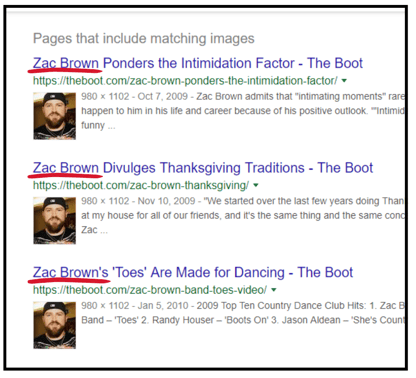
18,000 people in the U.S. are putting the “broke” in “heartbroken” as online scammers continue to prey on hopeless romantics, to the point of unwittingly aiding in a crime.The FBI’s online crime division issued an official warning about confidence fraud, also known as romance fraud. According to the FBI, in 2018, confidence/romance fraud was the seventh most commonly reported scam and the second costliest scam in terms of victim loss.
18,000 people in the U.S. are putting the “broke” in “heartbroken” as online scammers continue to prey on hopeless romantics, to the point of unwittingly aiding in a crime.
How it happens.
The scammer starts by meeting an unsuspecting victim through an online dating site or app using a fake photo as their profile pic. After earning the person’s trust, the fraudster tries to convince the poor victim to send money so they can, for instance, buy a plane ticket to visit, or pay for some tragedy in their life.
Here’s where it gets worse. In many situations, the victim unknowingly becomes a “money mule” — a term you may recognize from crime dramas like Scarface or The Wolf of Wall Street. A “mule” is someone who transfers money illegally on behalf of others. After developing a trusting relationship, the con artist convinces their victim to open a bank account under the guise of sending or receiving funds. Shortly after, the account is used to funnel money from any number of illegal activities. If the account is flagged by the financial institution, it may be closed and the cyber criminal will either persuade the victim to open a new account or begin grooming a new victim.
So far, the victim’s age, education and income bracket vary, but the FBI has identified women, senior citizens, and widows or widowers as the most targeted demographics.
Simply put: Fraudsters are awful.
And let’s be clear, online dating is a perfectly fine path to finding love. But it's important to use good judgment. The FBI identified ten patterns seen in many romance scam cases. If you're hoping to find your perfect match online, keep your eyes peeled for these red flags.
- Immediate requests to talk or chat on an email or messaging service outside of the dating site.
- Claims that your introduction was “destiny” or “fate,” especially early in communication.
- Claims to be from the U.S. but is currently living, working, or traveling abroad.
- Asks for money, goods, or any similar type of financial assistance, especially if you have never met in person.
- Asks for assistance with personal transactions (opening new bank accounts, depositing or transferring funds, shipping merchandise, etc.).
- Reports a sudden personal crisis and pressures you to provide financial assistance. Be especially wary if the demands become increasingly aggressive.
- Tells inconsistent or grandiose stories.
- Gives vague answers to specific questions.
- Claims to be recently widowed or claims to be a U.S. service member serving overseas.
- Disappears suddenly from the site then reappears under a different name using the same profile information.
The FBI also advises that you:
- Never send money to someone you meet online, especially by wire transfer.
- Never provide credit card numbers or bank account information without verifying the recipient’s identity.
- Never share your Social Security number or other personally identifiable information that can be used to access your accounts with someone who does not need to know this information.
As we mentioned, cyber criminals do not use their own photographs; they use an image from another social media account as their own. A reverse image search can determine if a profile picture is being used elsewhere on the internet, and on which websites it was used.
To perform a reverse image search on profile photos:
- Right click on the image and select “Search for image.”
- Right click again and select “Save image as” to save the photo to your device.
- Using a search engine like Google Images, choose the small camera icon to upload the saved image into the search engine.
Let's run a scenario. The image below features the dating profile of a man named "Will P." Seems like a cool guy. Let's see what happens when we reverse search this image.

Take a look at all the results we found just by pasting his image into the search bar.

"Will P" is actually Zac Brown, lead singer of famous country music group The Zac Brown Band. Now you decide: Did you win the heart of a 3x GRAMMY winner over the internet, or are you being scammed? The answer should be clear.
What to do if you are a victim.
If you ever find yourself the victim of a confidence/romance scam, the FBI recommends taking the following actions:
- Report the activity to the Internet Crime Complaint Center, your local FBI field office, or both. Contact IC3 at www.ic3.gov.
- Contact your financial institution immediately upon discovering any fraudulent or suspicious activity and direct them to stop or reverse the transactions.
- Ask your financial institution to contact the corresponding financial institution where the fraudulent or suspicious transfer was sent.
- Report the activity to the website where the contact was first initiated.
Source: Federal Bureau of Investigation